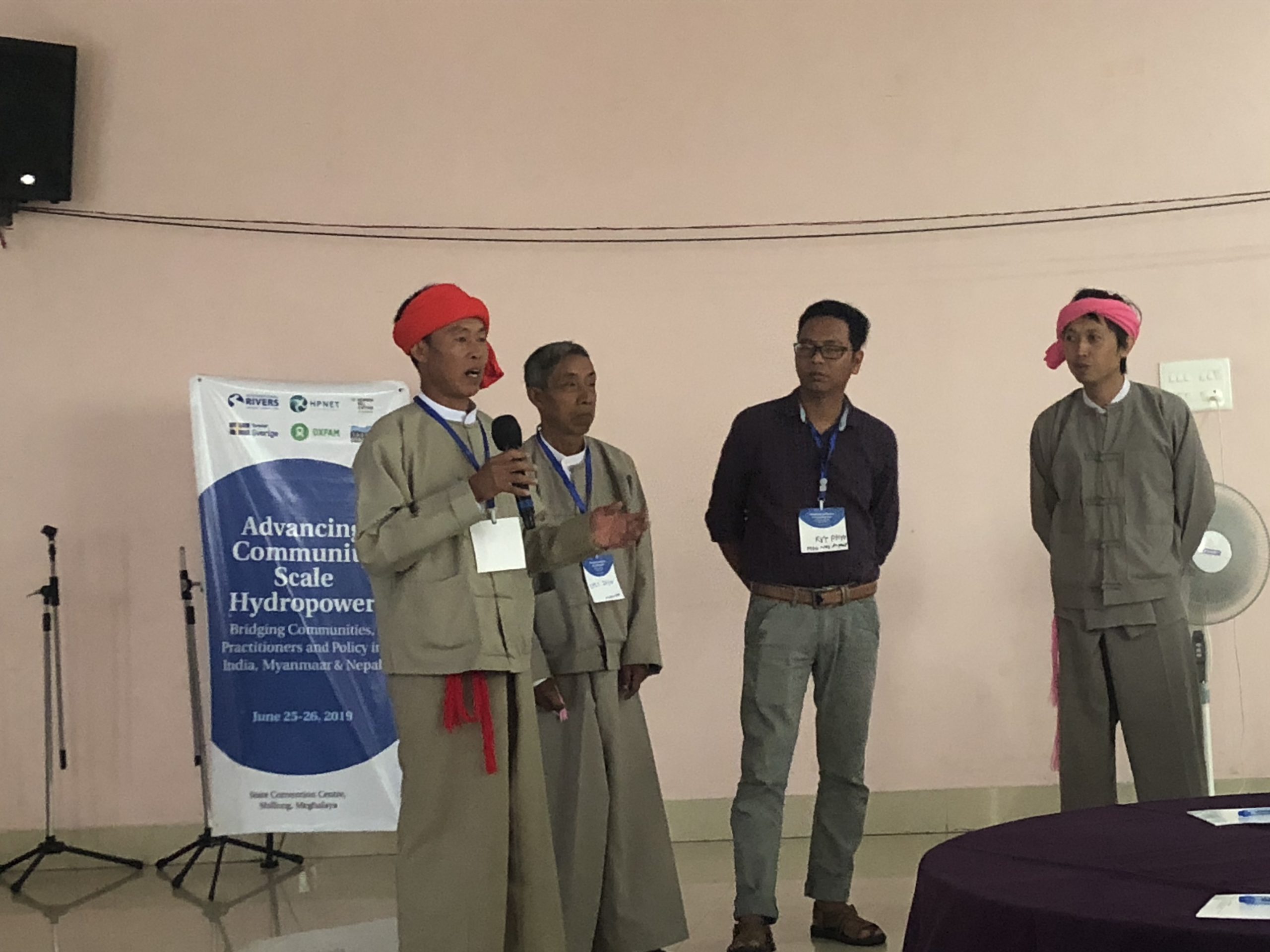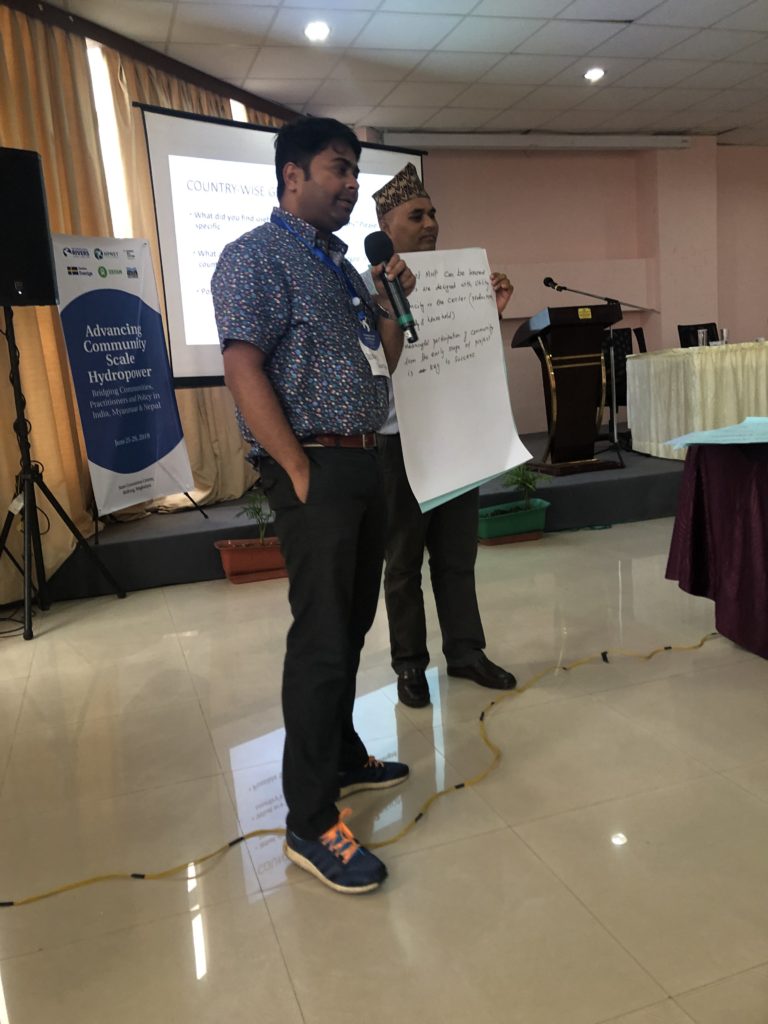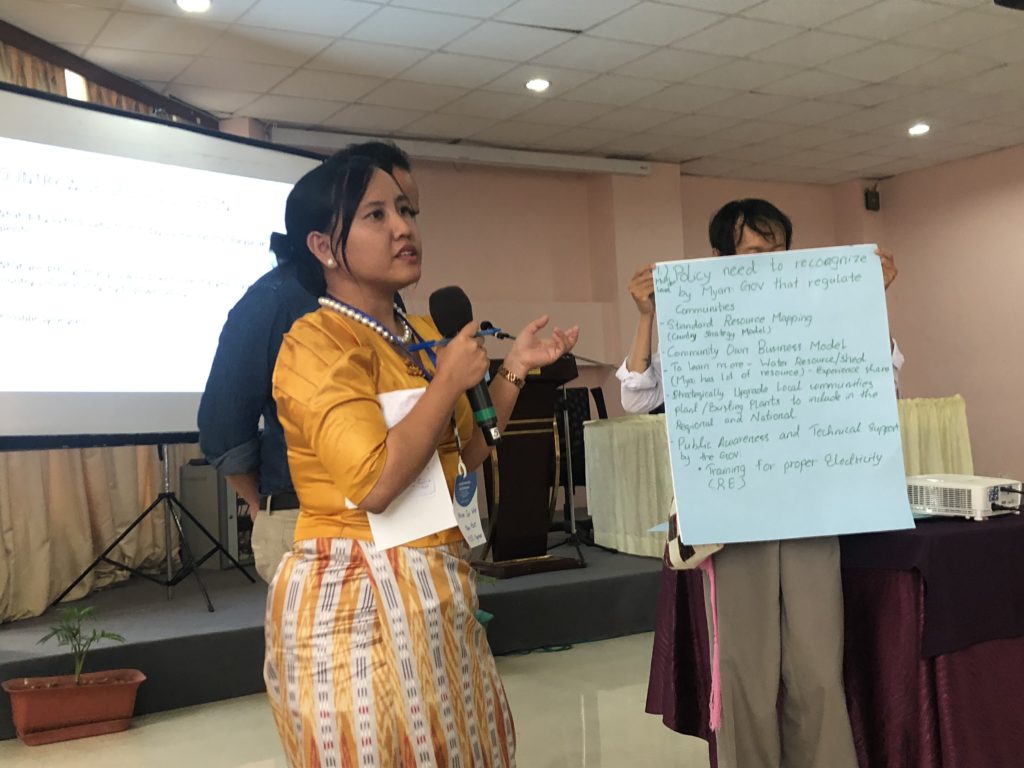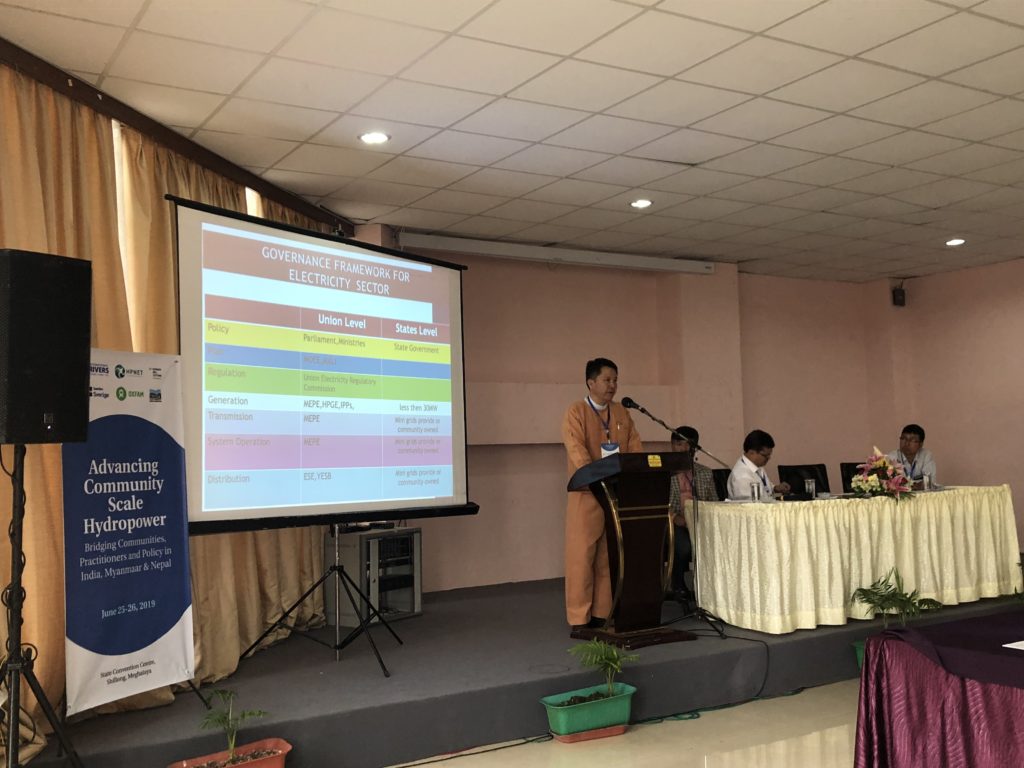By: Ayesha DSouza
Working on the Transboundary Rivers of South Asia program to advance uptake of small scale, renewable energy as an alternative to large dams, our teams in the South Asia and South East Asia collaborated with partners on a Renewable Energy Exchange between governments, civil society, NGO’s and micro hydro practitioners from India, Myanmar and Nepal in June 2019.
The 2 day intensive workshop saw sharing of existing policy presentations from the governments of the three countries and the same policies from the perspective of the civil society practice which led to a healthy discussion and debate. Some of the key learnings was the need for community involvement at every stage of policy development and demand driven policy reforms especially around clearances for these projects. Some felt the need to move away from subsidy towards more low interest loans as a means to finance the work. There was call for synergy between manufacturers of Micro hydro systems from the three countries.
Nepal’s energy federalism and mini grid connectivity was something that the group wanted to learn more about. They also called for a Track 1.5 Regional Workshop and Dialogue led by the Ministry of New and Renewable Energy in India.
A follow up field exchange was planned to Myanmar to learn about the entrepreneurship model of Micro hydro in Myanmar. Unfortunately, this was postponed due to the COVID 19 pandemic. Plans are still on to try conduct the exchange in 2021.
Thank you to the Support of our Partners
The renewable energy workshop was carried out as part of the Transboundary Rivers of South Asia (TROSA) program. TROSA is a regional water governance program supported by the Government of Sweden and managed by Oxfam. International Rivers is a regional partner of the TROSA) program.
Featured image: Community Members from Shan State, Myanmar Post the launch of the documentary film on MHP at the workshop| Photo by International Rivers




